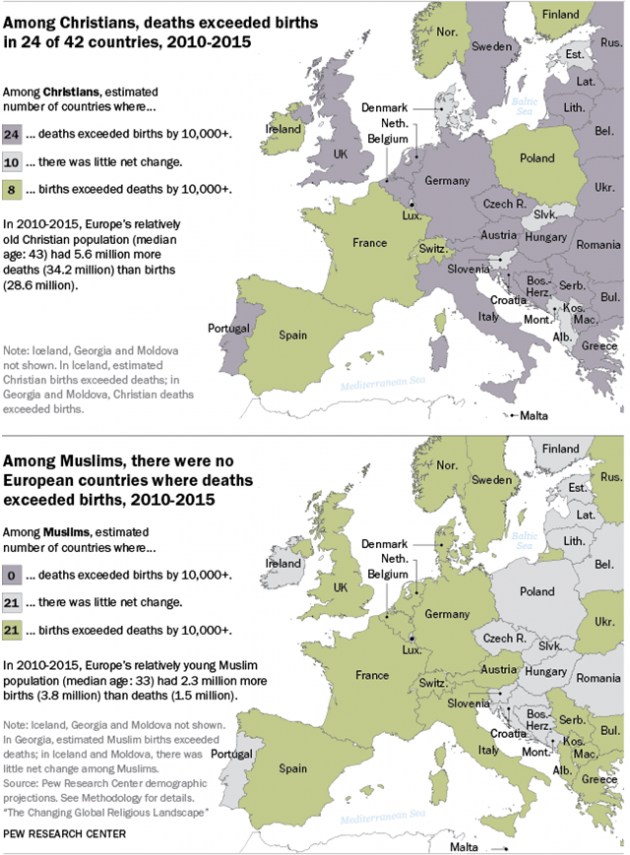Muslims' birth rate starts to outpace Christians; those with no religion face birth dearth, study finds

Christians continue to grow numerically in the world and more babies were born to Christian mothers than to those belonging to other religions in recent years, but Muslims are expected to change that position within 20 years.
New Pew Research Center demographic estimates show that Muslims are projected to be the world's fastest-growing major religious group in the decades ahead.
Pew says that signs of this rapid growth already are visible. In the period between 2010 and 2015, births to Muslims made up an estimated 31 percent of all babies born around the world – far exceeding the Muslim share of people of all ages in 2015 (24 percent).
More babies were born to Christian mothers than to people from any other religion in recent years, as Christianity continued its status as the world's largest religious group.
But Muslims are projected to be the world's fastest-growing major religion in the coming decades, Pew finds.
The world's Christian population also has continued to grow, but more modestly. In recent years, 33 percent of the world's babies were born to Christians, which is slightly greater than the Christian share of the world's population in 2015 (31 percent).
These are among the key findings of a new Pew Research Center analysis of demographic data.
The analysis is based on the same database of more than 2,500 censuses, surveys and population registers used for the 2015 report "The Future of World Religions: Population Growth Projections, 2010-2050."
Both reports share the same demographic projection models, but the figures on births and deaths in this analysis have not been previously released, said Pew on April 5.
The U.S-based research group noted that in contrast with the baby boom among Muslims, people who do not identify with any religion are experiencing a vastly different trend.
While religiously unaffiliated people currently make up 16 percent of the world's population, only an estimated 10 percent of the world's newborns between 2010 and 2015 were born to religiously unaffiliated mothers.
This dearth of newborns among the unaffiliated helps explain why religious "nones" (including people who identity as atheist or agnostic, as well as those who have no particular religion) are projected to decline as a share of the world's population in the coming decades.